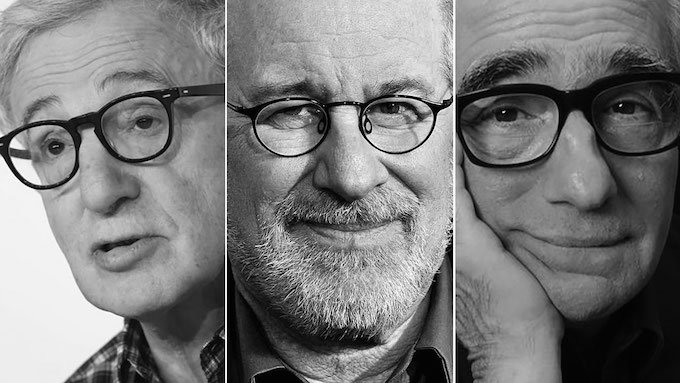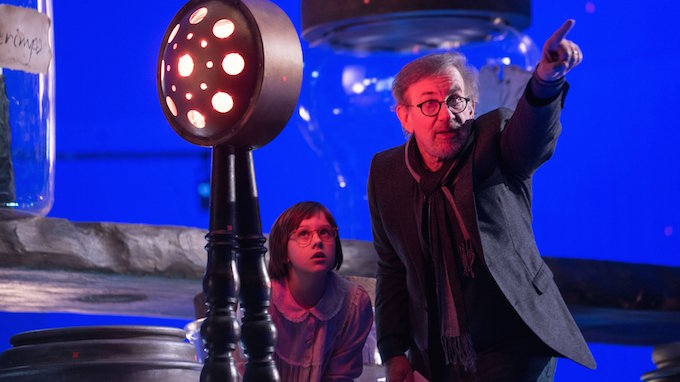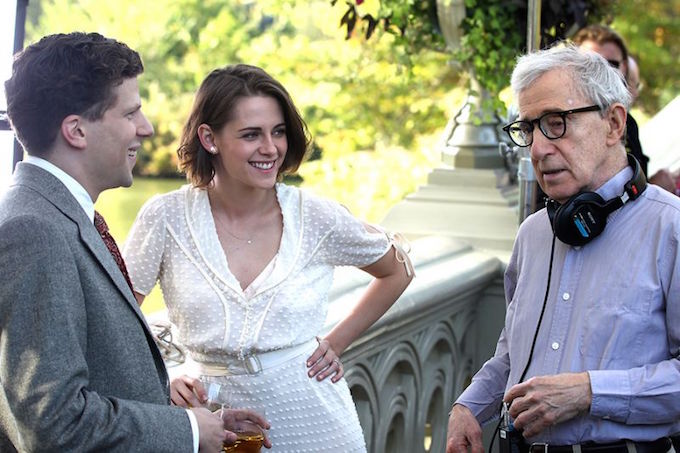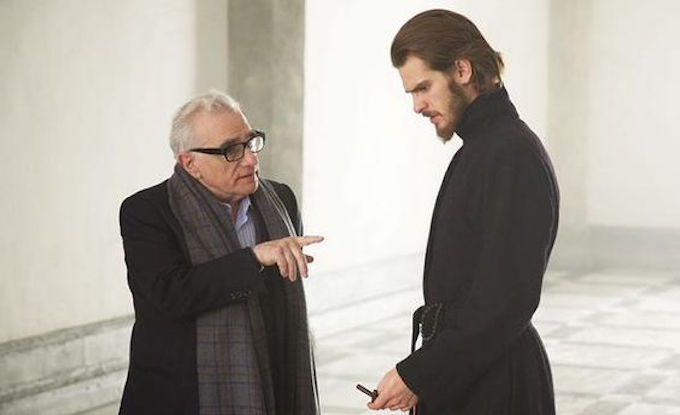TWELVE DAYS OF CINE-MAS: THREE TARNISHED IDOLS
TWELVE DAYS OF CINE-MAS
A traditional festive countdown, reflecting upon my 2016 movie-watching moments...
THREE TARNISHED IDOLS
When the dust settled on the greatest decade in Hollywood history, it was these three men who were at the forefront. They emerged from the 1970s with classic films to their names, works that defined and altered the ways movies were made and watched; they remained figgureheads of the American industry for four decades, delivering critical and/or commercial hits again and again. But something happened in 2016 that their legion of fans could not quite comprehend – they were proven to be fallible…

STEVEN SPIELBERG
History says…: The most successful director in cinema history, Oscar nominated in every decade for the last 40 years. His astonishing back catalogue includes Jaws, Close Encounters of The Third Kind, E.T. The Extra-terrestrial, The Color Purple, Empire of The Sun, Schindler’s List, Saving Private Ryan and Munich; as a producer, Poltergeist, Gremlins, Back to The Future, Men in Black and True Grit.
And in 2016?: Cannes rolled out the red carpet for the World Premiere of The BFG…and no one cared. Spielberg spoke of his affinity for Roald Dahl’s source material, the beloved book he read nightly to his children; of how he has neared shoot dates on the project for decades (at one point, Robin Williams attached), but effects technology failed to match his vision; of his ‘bromance’ with Bridge of Spies star Mark Rylance, whose face peers out from behind the mo-cap/CGI titular character. But critics were divided (the post-screening mood in Cannes was chilly) and audiences couldn’t be wooed; it stumbled out of the gate in the midst of the US summer and crawled to an anaemic US$55million domestically, an underwhelming US$122million globally (against a budget of US$140million).
Can he bounce back…?; There have been some stumbles along the way – namely 1941, Hook and War Horse - but his natural storytelling prowess and commercial instincts tend to rebound strongly. He followed 1941 with Raiders of The Lost Ark; Hook with Jurassic Park; War Horse with Lincoln. He is deep into production on the adaptation of the pop-culture sci-fi phenomenon Ready Player One (due 2018), a seemingly perfect fit which see’s him back in Minority Report/A.I. territory.

WOODY ALLEN
History says…: After a series of timeless comedies (Take the Money and Run; Sleeper; Love and Death), he emerged as the quintessential ‘New York filmmaker’ of the 70s when he wrote and directed the Oscar-winning rom-com, Annie Hall. AMPAS is always looking to reward the prolific, often brilliant auteur; he has 19 nominations and four Oscars (most recently, for his Midnight in Paris screenplay in 2012). European cinephiles cite his period of Bergman-esque introspection (Interiors, 1978; September, 1987; Another Woman, 1988) as works of genius.
And in 2016…?: Was afforded Opening Night honours at the Cannes Film Festival for Café Society, his melancholy look at Hollywood’s golden years. General consensus was that it was Woody on auto-pilot; he had done this rose-coloured, bittersweet nostalgia trip before and better, most notably with Radio Days and Bullets Over Broadway (Editor’s note: we liked it); it did US$11million in the U.S., bringing out the die-hard Allen fans but few others. A bad year turned worse when salacious accusations regarding his private life were dragged out again, this time by Mia Farrow’s son, Ronan. Attention turned to the premiere of his Amazon TV series, A Crisis in Six Parts, in which he co-starred opposite Miley Cyrus and comedy legend Elaine May. By the time Variety listed it as the 5th worst television show of the year (“It’s mind-boggling that anyone thought this was a good idea”), 2016 proved to be Allen’s annus horribilis.
Can he bounce back….?: He has an ‘Untitled Woody Allen Project’ due in 2017, with stars Kate Winslet, Justin Timberlake and Juno Temple. Allen has stumbled before, including a period at the turn of the century in which his U.S. films had become so disposable, he fled to Europe (and really bounced back, with the superb Match Point and Oscar winning Vicki Christina Barcelona). At 81, time may be a factor, but his work ethic and on-set energy is faultless.

MARTIN SCORSESE
History says…: One of the greatest filmmakers ever to step behind a camera. Along with peers like Spielberg, De Palma, Coppola and Lucas, Scorsese was one of the original ‘Movie Brat’ directors, emerging in the 70s with an encyclopaedic knowledge of film history and a seemingly effortless talent for pulsating narratives. His classics include Mean Streets, Taxi Driver, The Last Waltz, Raging Bull, The King of Comedy, After Hours, Goodfellas, Casino, Cape Fear, Gangs of New York, The Departed (for which he scored his first Best Director Oscar) and The Wolf of Wall Street.
And in 2016…?: Not included amongst those ‘classics’ is 1993’s The Age of Innocence, his bloated, self-important Oscar-bait period piece which sank under its own pretension despite some superb ensemble acting (Daniel Day Lewis, Winona Ryder, Michelle Pfeiffer). To wit, Silence, Scorsese’s latest over-produced, history-lesson bore, in which an earnest, sobby Andrew Garfield plays a Jesuit missionary, searching for Liam Neeson’s turncoat padre while preaching what was a forbidden religion in 17th century Japan. A former seminary student, Scorsese had been obsessed with Shūsaku Endō’s 1966 novel for decades, only now having the cache to pull together the eight different independent financiers needed to cover costs. Not even Scorsese could wring studio backing for the production; sensing award season potential, a moribund Paramount finally picked it up for distribution. Critics will love it because ‘A Scorsese passion-project’ makes good copy, but audiences, even the burgeoning faith-based demo, will find it a turgid slog. Add to the mix the critical slaying and cancellation of his HBO production Vinyl, and 2016 has been a year to forget for the great director.
Can he bounce back….?: Already happening, with the buzzed-about casting of Robert De Niro, Al Pacino and Joe Pesci in his next picture, The Irishman.

 Simon Foster
Simon Foster
